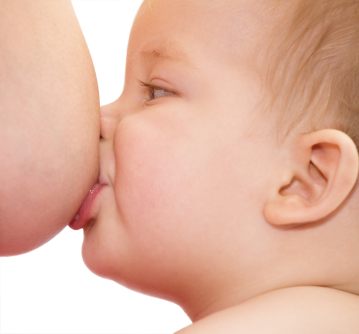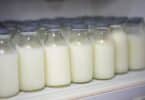
In former studies, researchers have determined that breastfed infants have, on average, fewer incidences of diarrhea, respiratory infections and influenza. Other studies have also found that breastfed children have a lower risk of developing a number of health conditions – including diabetes, asthma, multiple sclerosis and other illnesses – later in life. Duke researchers believe that they may have discovered how some of this protection is offered, and it all has to do with the way that breast milk digests in the gut.
In recent years, scientists have started to learn more about flora – or bacteria – and the importance of its existence in the gut. Since that time, scientists have become increasingly interested in the long-term effects of early diet choices on the intestinal system and the microbial universe that helps it function.
Other studies have shown that breastfed infants have healthier guts, but the study conducted by Duke is said to be the first to take a look at why or how.
“This study is the first we know of that examines the effects of infant nutrition on the way that bacteria grow, providing insight to the mechanisms underlying the benefits of breastfeeding over formula feeding for newborns,” said study leader Dr. William Parker.
In their study, researchers grew two strains of E. coli bacteria, necessary inhabitants of the gut that are cousins to the bacteria responsible for food poison. The strains were grown in various types of infant formula, breast milk, and cow’s milk.
Bacteria multiplied within all of the samples, but an immediate difference was noted in the way that the bacteria grew in breast milk; bacteria stuck together to form biofilms, adherent layers of bacteria that serve as a protective barrier against pathogens and infections. These biofilms were not noted, despite bacteria growth, in cow’s milk or in any of the formula samples.
“Only breast milk appears to promote a healthy colonization of beneficial biofilms,” said Parker, who believes that it may be possible to create better infant formulas through more research projects like this one. “These insights suggest there may be potential approaches for developing substitutes that more closely mimic those benefits in cases where breast milk cannot be provided…Knowing how breast mild conveys its benefits could help in the development of infant formulas that better mimic nature. This could have a long-lasting effect on the health of infants who, for many reasons, may not get mother’s milk.”
Those reasons may be many – mastitis, adoption, cracked or sore nipples, and more. However, it is important to know that scientists may never be able to create a formula that fully mimics nature, and that there are other benefits to mother not noted in this study, such as potential weight loss and a decreased risk of certain types of cancer.
“This study adds even more weight to an already large body of evidence that breast milk is the most nutritious way to feed a baby whenever possible,” said Dr. Gabriela Panayotti, from Duke. “We know that babies who receive breast milk have better outcomes in many ways, and mothers who breastfeed also have improved health outcomes, including decreased risks of cancer. Whenever possible, promoting breastfeeding is the absolute best option for mom and baby.”
Related Articles:
- More Canadian Mothers Choosing to Breastfeed
- Alanis Morissette Talks Baby Brain and Managing Her Music Career
- Vanderbilt University to Participate in Statewide Initiative to Increase Exclusive Breastfeeding Rates






